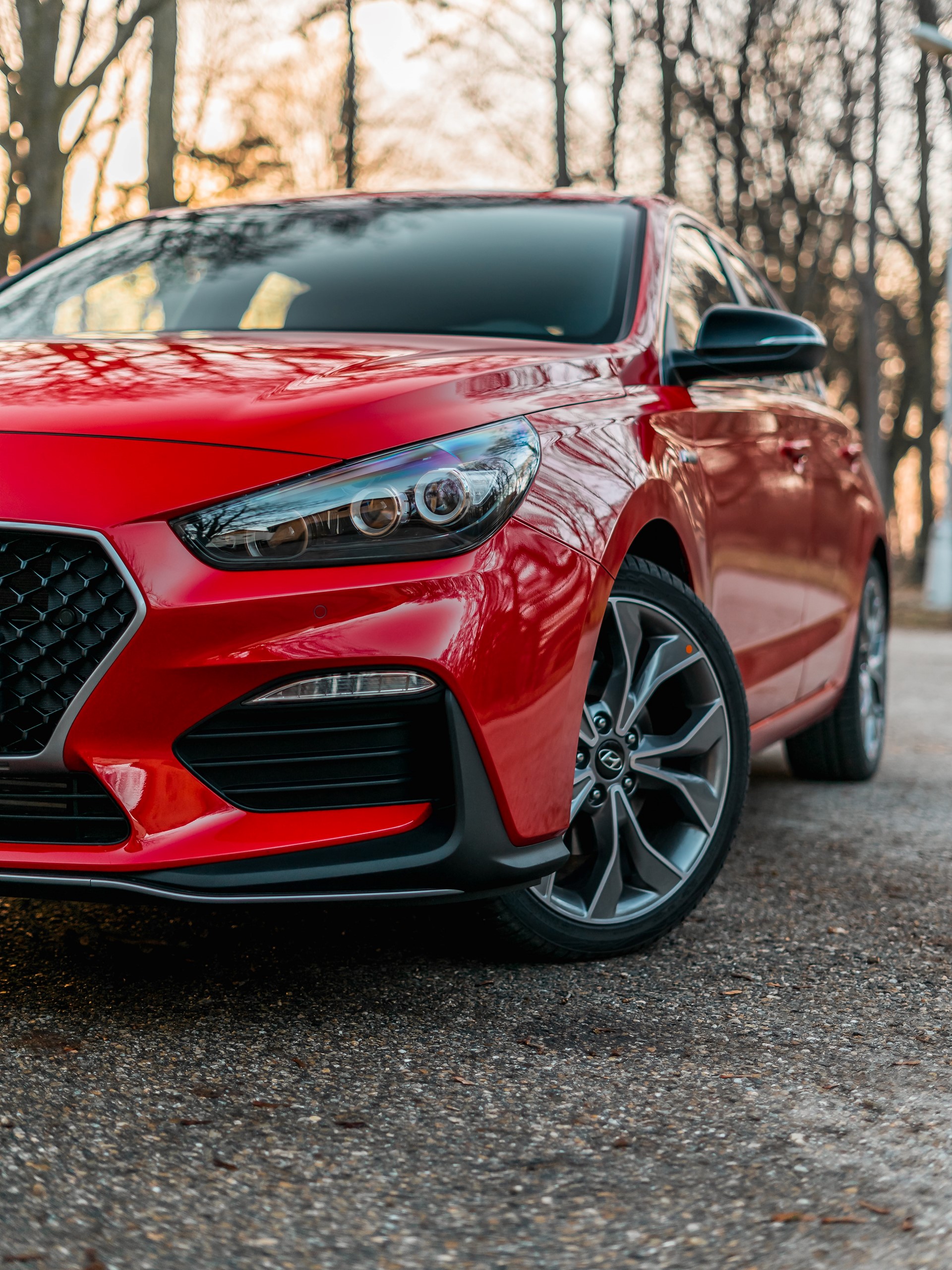Should I buy a used or new car?
Written by
Monday 10th March 2025

So you’re on the lookout for your next car and the time’s come to make a decision: do you opt for a brand-new vehicle or choose a used car with a few miles already on the clock?
There are advantages and disadvantages to both, so consider carefully what type of car best suits your needs.
Pros of buying a new car
Benefit from the latest technology and mod cons
A new car comes with up-to-date features. While it’s pretty cool to have self-parking functionality or heated seats, the most important thing to consider is the safety features. When you buy new, you’ll get access to the latest car safety technology. Think head-up display, adaptive cruise control, blind spot detection, night vision technology and centre airbags – all designed to keep you safer as you travel.
Choose your car’s exact specifications
There’s no compromising when you’re looking for a new car. Build your vehicle to your exact specifications, adding on the features you want and avoiding paying for the bits of tech you’ll never use.
Enjoy manufacturer warranty
Most car manufacturers will offer a three-year warranty period – though some new cars come with an extended warranty. This basically means that, if there’s a fault with your car, the manufacturer will repair or replace the required parts free of charge.
Keep in mind, though, that each warranty policy is different – there might be mileage limits, or certain parts or faults may not be included (such as your car’s tyres that are likely to experience fair wear and tear).
Avoid the cost of MOT tests for the first three years
New cars won’t need an MOT test for three years, so you won’t need to worry about the costs or inconvenience of an MOT straightaway. That said, you should still factor in an annual service (or a service once your car’s done between 10,000-15,000 miles, whichever comes first) to make sure your car’s in the best possible condition. This also ensures your car has a full service history, making it much easier to sell on in the future.
You’ll know the car’s full history (because there isn’t one!)
There are a lot of checks you’ll need to do if you opt for a second-hand car to make sure everything’s in good working order. You never quite know how previous owners have looked after it so you need to be extra careful. With a new car, you won’t need to worry about its past life because you’ll be the first owner to take care of it. You’ll have full responsibility for the way the car’s driven, its service history and repairs – giving you greater control over its condition.
You may be offered good finance deals
If you’ve decided car finance is the best option for you, you could find you’ll get better rates from your car dealership when you opt for a brand-new model. Manufacturers want to promote their latest releases as much as possible, and a good way for them to do this is by offering enticing finance deals – you’ll still need to find the money to put down a deposit, though.
You have the option to lease a new vehicle
Leasing is typically cheaper than buying as you’ll never actually own the car – you’ll hand it back at the end of your contract instead. Therefore, you’ll only pay the difference between the purchase price and the amount the car is predicted to be worth at the end of the lease. This makes leasing a car a great option for those who prefer to drive the latest model, without the associated high purchase cost and the responsibility of ownership.
Pros of buying a used car
Used cars typically cost less
This one’s obvious. A brand-new car complete with the latest tech is bound to cost more than a model that’s already hit the road for a year or more. If cost is your biggest deciding factor, you may find better prices on used models.
That said, the lower number of new cars being manufactured due to ongoing supply chain issues over the last few years has caused the used car market to boom. This means second-hand cars are costing much more than they used to, as the demand for them is greater than it has been in the past.
There’s likely to be a greater choice of cars
A limited number of new car models are on sale at any one time, whereas you can source almost every make and model of car when you shop the second-hand market. This gives you a wider range of options and allows you to personalise your search. For example, you can narrow your search down to your preferred car manufacturer, car age or even the features you can’t live without.
A used car can be a more practical option
The supply chain market continues to impact the sale of new cars, leading many people to turn to the second-hand market instead. If you want an easier ride choosing a car that meets your specifications, and having your hands on the steeling wheel in good time, a used car might be the preferred option.
In 2022 alone, over 6,890,000 used cars changed hands compared to just 1.61 million new cars being registered. This suggests that used cars are still the more popular choice, despite prices for second-hand cars continuing to rise.
Drive away in the car you want much quicker
Your new car won’t be available the moment you buy it. In fact, you could be waiting over six months for your car to be ready to collect which simply isn’t viable if you need a car quickly.
A used car is the best option if you need a set of wheels sooner (for example, if your current car’s broken down beyond repair, or you need an upgraded family-friendly model).
You’ll avoid depreciation costs
A new car will lose up to 40% by the end of its first year. A used model will likely depreciate at a much lower pace, so it’s likely you won’t lose as much money when the time comes to sell your car.
You can buy a used car privately or from a dealer, depending on your preference
You can only buy a new car from a dealership or directly from the manufacturer, whereas you can buy a second-hand car from a multitude of places. Dealerships, online used car marketplaces and private sellers all offer second-hand cars so you can conduct a nationwide search to find your dream car.
How to buy a used or new car
Whether you’ve decided on a new model or a second-hand car, you’ll need to figure out the best way to pay.
Many dealerships will offer car finance, though you could lease a new car or save up to buy it in cash. Another great option is to use a personal car loan to borrow the money you need to pay for your car outright, ensuring you’re the legal owner from the get-go. With us, you could borrow between £1,000 and £35,000 at with competitive rates from as low as 6.5% (£7,500-£25,000). So whether you're looking to top up your budget by £5,000, stick to a £10,000 limit for your next car or splash out on a brand new vehicle for £25,000, we're here to help you make it happen.
Still wondering which route to choose? Our blog on the difference between car finance and a personal loan could help.
Written by
Stephanie Reid is a financial services expert with over eight years of experience writing money-saving articles at Novuna Personal Finance. She has written hundreds of articles on a variety of topics including interior design, home improvements and weddings - with a keen eye for spotting money-saving opportunities and passing these tips onto readers. As a mum of two, Stephanie knows how important budgeting effectively is for parents and often incorporates family budgeting tips into her guides.



